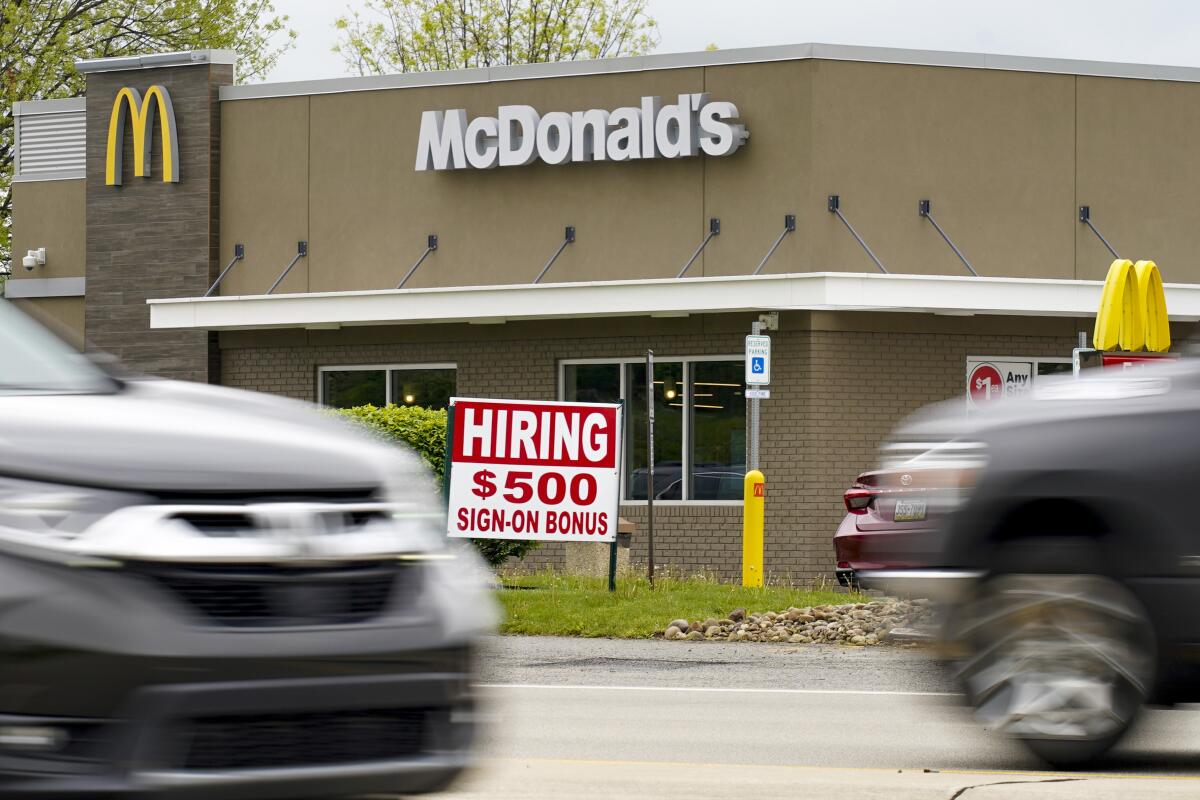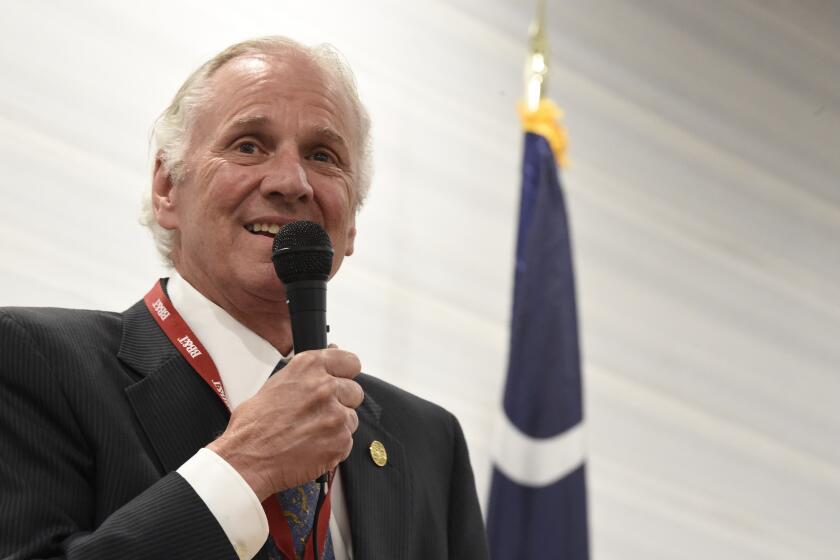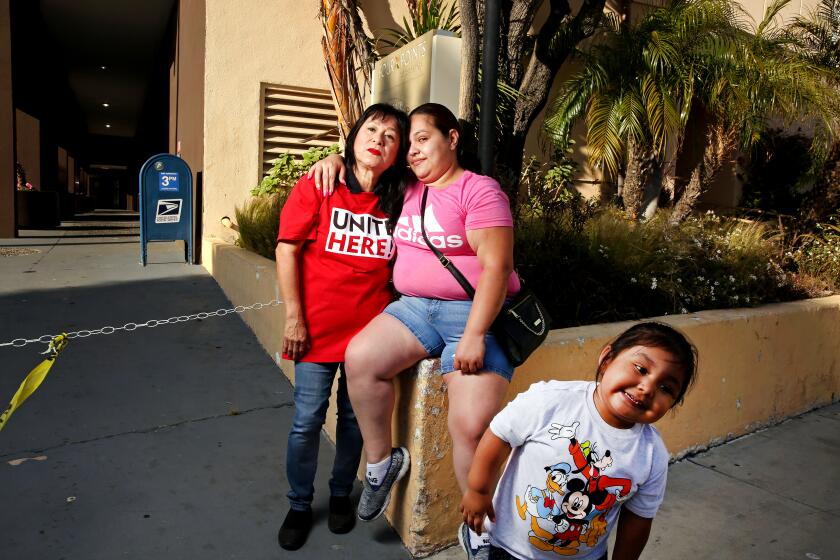U.S. job openings soar to highest level on record as labor shortage persists

- Share via
WASHINGTON — U.S. employers posted a record number of available jobs in March, illustrating starkly the desperation of businesses trying to find new workers as the country emerges from the pandemic and the economy expands.
Yet total job gains increased only modestly, according to a Labor Department report issued Tuesday, known as the Job Openings and Labor Turnover Survey, or JOLTS. The figures follow an April jobs report last week that was far weaker than expected, largely because companies appear unable to find the workers they need, even with the unemployment rate elevated at 6.1%.
Job openings rose nearly 8%, to 8.1 million in March, the most on records dating to December 2000, the government said. Yet overall hiring that month rose less than 4% to 6 million. The hiring number is a gross figure, while the government’s jobs report — which said 770,000 jobs were added in March — uses a net total.
A separate survey by the National Federation of Independent Business found that 44% of small businesses had jobs they couldn’t fill, also a record high.
The NFIB and JOLTS “add to evidence from the April employment report that labor shortages are widespread, pushing up prices and potentially acting as a brake on the recovery,” said Michael Pearce, an economist at Capital Economics.
Job postings rose in most industries, including restaurants, bars and hotels; manufacturing; construction; and retail. They fell in healthcare and transportation and warehousing.
Evidence mounts that some employers can’t find workers because they’re jerks.
The enormous number of openings probably will add fuel to a political dispute about whether the extra $300 in weekly federal unemployment aid, on top of a state payment that averages about $320, is discouraging those out of work from seeking new jobs.
Many Republicans in Congress have argued that it is, and several states have threatened to cut off the $300 payments, with Georgia the latest state to consider such a move.
PresidentBiden, who included the extra money in his $1.9-trillion rescue package approved in March, disputed that the $300 supplemental payment is to blame Monday. But he also urged the Labor Department to work with states on renewing requirements that those receiving aid must search for jobs and take a position if offered. The job search rule was suspended during the pandemic, when many businesses were closed.
“Anyone collecting unemployment who is offered a suitable job must take the job or lose their unemployment benefits,” Biden said.
Many people out of work are also reluctant to take jobs in service industries that require contact with the public for fear of contracting COVID-19. And many women aren’t searching for jobs because they haven’t found child care for children who are still at home taking online classes for at least part of the week.
The pandemic’s “shecession” could set back decades of progress on workplace equality, especially among Latina, Black and Asian women.
More to Read
Sign up for Essential California
The most important California stories and recommendations in your inbox every morning.
You may occasionally receive promotional content from the Los Angeles Times.














